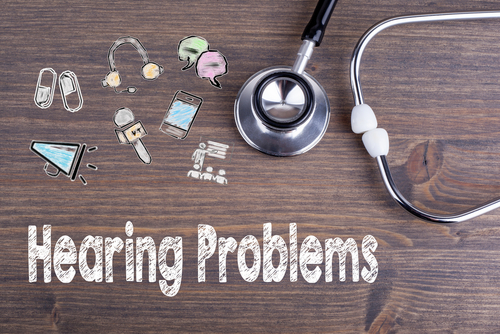Over 5% of world’s population has disabling hearing loss
UNI Jan 29, 2018
Over 5 per cent of the world’s population – 360 million people – has disabling hearing loss (328 million adults and 32 million children).

Disabling hearing loss refers to hearing loss greater than 40 decibels (dB) in the better hearing ear in adults and a hearing loss greater than 30 dB in the better hearing ear in children. The majority of people with disabling hearing loss live in low- and middle-income countries. Approximately one third of people over 65 years of age are affected by disabling hearing loss. The prevalence in this age group is greatest in South Asia, Asia Pacific, and sub-Saharan Africa.
A person who is not able to hear as well as someone with normal hearing – hearing thresholds of 25 dB or better in both ears – is said to have hearing loss. Hearing loss may be mild, moderate, severe, or profound. It can affect one ear or both ears, and leads to difficulty in hearing conversational speech or loud sounds.
'Hard of hearing' refers to people with hearing loss ranging from mild to severe. People who are hard of hearing usually communicate through spoken language and can benefit from hearing aids, cochlear implants, and other assistive devices as well as captioning. People with more significant hearing losses may benefit from cochlear implants. 'Deaf' people mostly have profound hearing loss, which implies very little or no hearing. They often use sign language for communication.
The causes of hearing loss and deafness can be divided into congenital causes and acquired causes. Congenital causes may lead to hearing loss being present at or acquired soon after birth. Hearing loss can be caused by hereditary and non-hereditary genetic factors or by certain complications during pregnancy and childbirth, including: maternal rubella, syphilis or certain other infections during pregnancy; low birth weight; birth asphyxia (a lack of oxygen at the time of birth); inappropriate use of particular drugs during pregnancy, such as aminoglycosides, cytotoxic drugs, antimalarial drugs, and diuretics and severe jaundice in the neonatal period, which can damage the hearing nerve in a newborn infant.
Acquired causes may lead to hearing loss at any age, such as: infectious diseases including meningitis, measles and mumps; chronic ear infections; collection of fluid in the ear (otitis media); use of certain medicines, such as those used in the treatment of neonatal infections, malaria, drug-resistant tuberculosis, and cancers; injury to the head or ear; excessive noise, including occupational noise such as that from machinery and explosions; recreational exposure to loud sounds such as that from use of personal audio devices at high volumes and for prolonged periods of time and regular attendance at concerts, nightclubs, bars and sporting events; ageing, in particular due to degeneration of sensory cells and wax or foreign bodies blocking the ear canal. Among children, chronic otitis media is a common cause of hearing loss.
-
Exclusive Write-ups & Webinars by KOLs
-
Daily Quiz by specialty
-
Paid Market Research Surveys
-
Case discussions, News & Journals' summaries